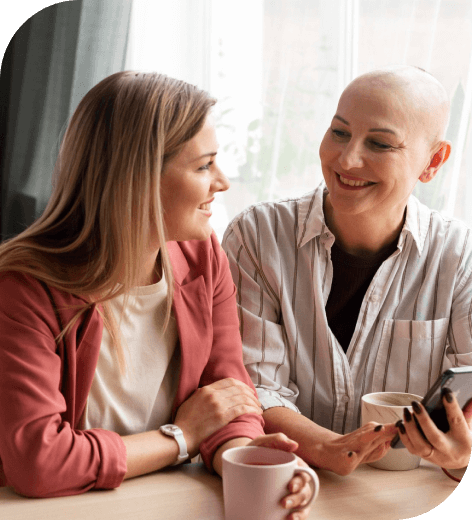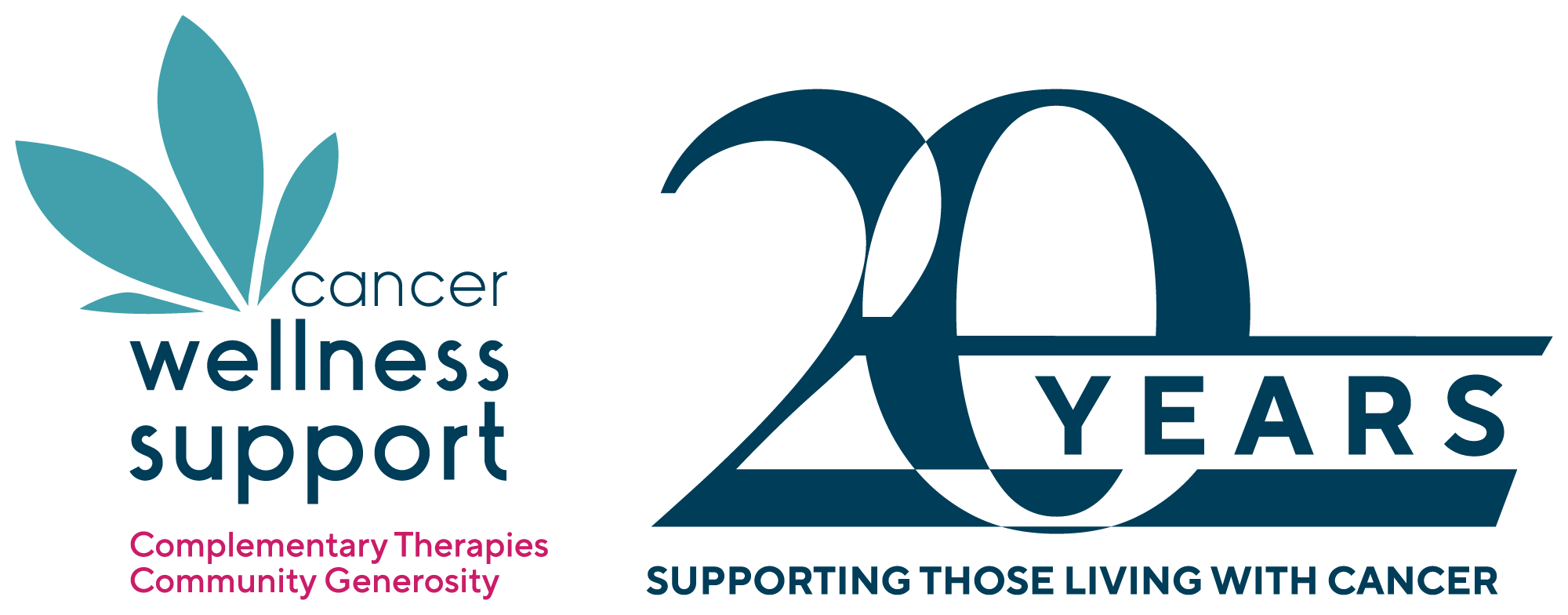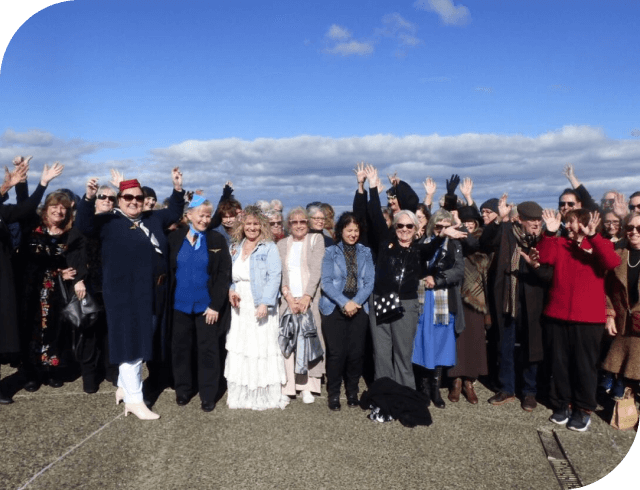
Wellness And Therapy Guides
Counselling
What is Counselling?
For many people living with cancer, adjusting to a new reality brings immense change and challenges.
When considering counselling, some questions may flood your mind: “Who can I confide in? Can I really share my deepest and darkest thoughts with a stranger? Where would I even start?”.
Advancements in neuroscience have deepened our understanding of how our brain functions, providing a scientific basis for our understanding of counselling.
Counselling involves a collaborative effort between a qualified counsellor and a client, aimed at fostering your self-awareness and nurturing your mental health and wellbeing. As a talk-based therapy, new neural pathways form, breaking old patterns and allowing you to consider new perspectives.
It’s a confidential space where you gain clarity and insight, guided by a skilled professional. It’s a safe haven to explore your innermost thoughts without fear of judgement.
For many people living with cancer, adjusting to a new reality brings immense change and challenges.
When considering counselling, some questions may flood your mind: “Who can I confide in? Can I really share my deepest and darkest thoughts with a stranger? Where would I even start?”.

Advancements in neuroscience have deepened our understanding of how our brain functions, providing a scientific basis for our understanding of counselling.
Counselling involves a collaborative effort between a qualified counsellor and a client, aimed at fostering your self-awareness and nurturing your mental health and wellbeing. As a talk-based therapy, new neural pathways form, breaking old patterns and allowing you to consider new perspectives.
It’s a confidential space where you gain clarity and insight, guided by a skilled professional. It’s a safe haven to explore your innermost thoughts without fear of judgement.
Benefits for People Living With Cancer

Many people living with cancer struggle with adapting to their ‘new normal’, marked by altered routines and challenges that affect their quality of life.
When integrated into cancer care, research shows that counselling can positively affect the common psychological side effects of standard cancer treatment such as reducing anxiety, depression or sleep issues.
Counselling offers a toolkit for managing stress, anger and grief, working through financial strains, changing dynamics in personal relationships, and learning to come to terms with this turning point in your life.
Counselling can integrate seamlessly into cancer care frameworks, exerting positive impacts on your mental health and personal wellbeing throughout your cancer journey.
Benefits for People Living With Cancer
Many people living with cancer struggle with adapting to their ‘new normal’, marked by altered routines and challenges that affect their quality of life.
When integrated into cancer care, research shows that counselling can positively affect the common psychological side effects of standard cancer treatment such as reducing anxiety, depression or sleep issues.
Counselling offers a toolkit for managing stress, anger and grief, working through financial strains, changing dynamics in personal relationships, and learning to come to terms with this turning point in your life.
Counselling can integrate seamlessly into cancer care frameworks, exerting positive impacts on your mental health and personal wellbeing throughout your cancer journey.
Benefits for Carers
Carers can often find it hard to ask for help themselves, as all of their focus is on the person living with cancer.
As much as you may love and care for that person, being a carer can be emotionally and physically taxing, often leading to feelings of stress, anxiety, and burnout.
Counselling offers carers invaluable support and respite, providing a safe space to express your emotions, fears, and frustrations.
Through counselling, you’ll gain practical coping strategies and be equipped with communication skills to effectively your caring role, strengthen relationships, and establish healthy boundaries.
Counselling can help you reduce stress, find balance, and implement your own self-care amidst the complexities of caring for a loved one.

Carers can often find it hard to ask for help themselves, as all of their focus is on the person living with cancer.
As much as you may love and care for that person, being a carer can be emotionally and physically taxing, often leading to feelings of stress, anxiety, and burnout.
Counselling offers carers invaluable support and respite, providing a safe space to express your emotions, fears, and frustrations.
Through counselling, you’ll gain practical coping strategies and be equipped with communication skills to effectively your caring role, strengthen relationships, and establish healthy boundaries.
Counselling can help you reduce stress, find balance, and implement your own self-care amidst the complexities of caring for a loved one.
What to Expect from Your Session

Feeling nervous before your first counselling session is normal, but rest assured, our counsellors prioritise creating a safe, supportive space for you.
Counselling is confidential and non-judgmental. Your counsellor will gently guide you, exploring your concerns and goals.
Take a deep breath as you enter the session; everything shared remains confidential. Here, you can share your story with a skilled listener.
Your counsellor will help you navigate without pressure to know where to start. Together, you’ll explore your story, exploring its meanings, uncovering insights and gaining clarity.
Through active listening, empathy, and insightful questions, your counsellor will ask insightful questions, offering clarity and understanding where you may have struggled alone.
You may also receive practical guidance for continued support after the session.
What to Expect from Your Session
Feeling nervous before your first counselling session is normal, but rest assured, our counsellors prioritise creating a safe, supportive space for you.
Counselling is confidential and non-judgmental. Your counsellor will gently guide you, exploring your concerns and goals.
Take a deep breath as you enter the session; everything shared remains confidential. Here, you can share your story with a skilled listener.
Your counsellor will help you navigate without pressure to know where to start. Together, you’ll explore your story, exploring its meanings, uncovering insights and gaining clarity.
Through active listening, empathy, and insightful questions, your counsellor will ask insightful questions, offering clarity and understanding where you may have struggled alone.
You may also receive practical guidance for continued support after the session.
References
1. Definition of Counselling | College of Counselling Counsellors
2. Counsellors | Better Health Channel
3. Counselling | WIRE
4. Evidence-based Counselling | The EPICentre
5. What is Counselling? | Australia Counselling
6. Counselling | SoulAdvisor
7. Psychological treatments to improve quality of life in cancer contexts: A meta-analysis | International Journal of Clinical and Health Psychology
8. Integrative Oncology | An Overview
9. Patient-Centered Care | Science Direct
10. Depression | How counselling can help | bacp
11. 9 Family Counselling Benefits | DS Psychology Melbourne

